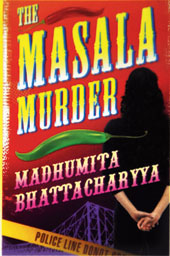 |
Why be a writer when there are so many other things you can be? Trapeze artist. Bank manager. Road builder. Google employee. Filmmaker. Driver. Diver. Dog trainer.
l of these are options that are more practical, and probably more lucrative than writing. And yet countless people around the world believe that they have at least one novel in them, and a fewer number — but still a remarkably large one — actually put fingers to keyboard and hammer out those 100,000 words and send them to a publisher.
Before you start, know that such shots in the dark almost never reach their target. Publishers, you will be told, receive hundreds of such manuscripts a week. Most of them are unreadable and after a cursory glance (if that) end up in what is known as the slush pile. Here, your manuscript will rot and fester for months, even years, and if you are lucky, you will have a rejection at the end of it. Oftentimes, you will hear nothing at all. The waiting is the worst.
Avoiding the slush pile is the main objective of every debut writer, and unfortunately the primary means of doing so — employing an agent — is still a relatively uncommon practice in India. There are a growing number of literary agencies sprouting around the country, however, giving newbies some chance of desperately-needed feedback about their work and a foot through the doors of the gatekeepers of the industry. For most, trolling the phone book for contacts of people in the business, or friends of friends with contacts in the business, is the next best bet.
When you hear nothing, you will possibly consider self-publishing. Odds are, this is a very bad idea. Most self-published books are not very good, and almost all suffer for not having an editor. But since taking your chances is cheap, and after sensations such as E.L. James and Amanda Hocking have provided an inch of hope with which young writers can hang themselves, everyone is suddenly talking about it. Who needs a publisher to sit in judgement on what should or should not be read?
Even if you don’t think you need an impartial eye reading your material (believe me, you do), finding readers is not as easy as it sounds, even in the Kindle era. Out of millions of self-published titles, a minuscule number taste success. Most self-published books will sell around 500 copies, mainly purchased by friends and family. If that is your objective, go for it. If you are sure your work is better than that, wait.
Some advice routinely handed out to writers is best ignored, such as to ‘write what you know’. What does this even mean? Wouldn’t that make fiction a whole lot more like non-fiction? But if you have ever been told not to quit your day job, that is advice you should take, as sounder words have never been spoken. Dreams of being the next J.K. Rowling should be set speedily aside.
Writing is a lonely enough task as it is; and unless you have a burning desire to be lonely and poor, or you are lucky enough to have a secure source of finances to see you through years of little return on investment, keep going to office. Or at least work part-time to feed your mouth, and keep desperation at bay. For even if you do get a book deal, the wait will be arduous and it will drive you to distraction. It will help to have something else to do. If and when it finally comes, the advance will be meagre, and the royalty cheques may never arrive as promised.
And then you might think of the likes of Arundhati Roy. It happens, right? Yes, it does: there are always outliers. Just like J.K. Rowling, who is far richer than the queen of England — and every other writer who has ever walked the planet. Think about that as the literary equivalent of winning the lottery. Would you give up everything else to make buying Playwin tickets a full-time occupation, with complete faith that you will win the biggest jackpot ever? Once in a very, very long while, a writer will achieve unspeakable wealth, to keep the fish biting. Almost everyone else, including award-winning literary stalwarts — who too have mouths to feed and mortgages to pay — have something going on the side.
So if it is all so hopeless and pointless, why do it? Because you have to. Because to not do it is no longer an option. Because your fingers just can’t keep still. And here — finally — is the good news: writing is free. Unlike so many other hard-to-realise artistic ambitions, writing the Great Indian Novel, or the next bodice ripper, comes with no costs, so long as you have a computer at hand.
And when you finish that novel, hope too is free. Hope that you may one day get a three-book deal; hope that there may be a bidding war for your book; hope that there may be publishers wooing you for your second-third-fourth works. Because as a writer, the one thing you have in spades is imagination, and that is also free — if you discount the cost of a dangerous addition to a dream.










